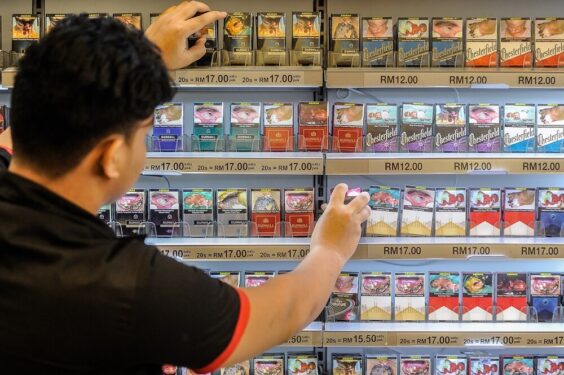By Gurdial Singh Nijar
THE coronavirus pandemic has abruptly altered our lives. The government has introduced measures the likes of which were unimaginable barely a few weeks ago. They are larger than any ever implemented before, and lock us away from social life, extended familial connections, workplaces and much more.
These have been accompanied by sanctions and penalties. Generally, surveys show that the public approves them. Fear from the death numbers paraded daily has quite clearly influenced this. And the public accepts that the strictures on their lives are well-intentioned and justified. After all, they will expire when the scourge ends.
But there are mixed signals of sorts emanating from on high. Prime Minister Tan Sri Muhyiddin Yassin spoke of the need to adjust to a “new normal” – even after the pandemic is “conquered”.
All well and good. And we accept this in good faith, but we need to be vigilant – to ensure that the virus does not provide a rationale for expanding the surveillance state and introducing even stronger political control that continues into the future.
Because the measures are far reaching – monitoring our every move: what we can do, when and how. They also intrude into private contracts – relating, for example, to employment contracts, tenancies and much more. They also shunt aside provisions in laws.
At first blush, that may appear fine. But they are in the form of edicts delivered by the executive – not anchored in any act of Parliament. That also means the people’s representatives (MPs and of state assemblies) have not passed muster through the democratically designated process.
Criminal measures should be the last resort
Don’t forget, all acts of the executive (government) under our constitutionally mandated separation of powers doctrine must ultimately be presented in the assemblies for discussion, debate, scrutiny and acceptance. The will of the voice of the people cannot be upended by a government. The PM himself expressed the need to rally all, given the unusual way in which Perikatan Nasional ascended to power.
More importantly, whatever is required of the people must be anchored in legality. Else it will lose its legitimacy. And the measures must be proportional to the objective – taking into account the nature of the breach. Distinguish wilful and open defiance from the inadvertent or relatively minor violation, or of acts which are necessitated by extenuating circumstances. Criminal measures should be the last, not the first, resort. And punitive measures must be tempered with mercy. Even summarily imposing RM1,000 compounds may appear hefty at a time when people are losing jobs.
Crucially, the media should be given latitude to assess governmental measures critically. The threat by a senior minister to punish alleged misreports and misquotes by the media — in particular online portals — has been widely condemned. The Centre for Independent Journalism said that this silencing of dissenting voices undermines media freedom and “is signalling the downwards spiral of Malaysia into an inconceivable authoritarian and undemocratic regime.”
Anchoring measures in the law
Instructively, Singapore has presented to its Parliament the first reading of the Covid-19 (Temporary Measures) Act, and passed it on April 7.
It provides for the extraordinary measure of interference with private contracts. Relief is given for failure to perform obligations under contracts for construction, supply, events or tourism-related – caused by a Covid-19 event. Detailed provisions prohibit action against a party in breach. An assessor can make a determination whether a party is entitled to the relief.
Bankruptcy laws have been relaxed – a bigger amount as well as an extended time period to file a bankruptcy application.
Meetings can now be conducted online. Court proceedings can also be conducted by “remote communications technology”. There are also provisions for the remission of property tax as well as rents under tenancy agreements.
And it, together with any “control order” regulations under it, will last the duration of the crisis.
I cite this Singapore law to stress that when inroads are made to existing laws and practices as well as intrusions into private contracts, a law is needed to authorise this.
Expeditious as the unprecedented virus crisis makes it, the executive must act within the purview of the law and pass a law: presented, scrutinised and assented to by Parliament. That is what the rule of law requires. In a democracy, ultimately, the will of the people must be heard.
Malaysia does have the Prevention and Control of Infectious Diseases Act 1988. And under it, the government has enacted regulations to control movements, and punish violations. It expired on March 31 – and I hope it has been extended.
The regulations did not name Covid-19 as an infectious disease. This could raise some legal issues.
All the rest of the edicts and requirements being pronounced by the government should be embedded in laws and or regulations to ensure their legitimacy. Nothing short of that suffices.
The Companies Commission of Malaysia has just announced new measures to ease the burden of businesses. The threshold for a company’s “inability to pay” has been raised from RM10,000 to RM50,000 until Dec 31. The period to answer the notice of claims by a company has also been lengthened to six months, compared to the previous 21 days. A company’s annual general meeting can also be deferred.
The sources of these measures are unclear.
Further, one of the bodies that is calling the shots is the National Security Council (NSC). Recall that the NSC Act was enacted hurriedly on the eve of the 14th general elections. It gives power to the PM to have absolute control over areas declared as security zones. Predictably, it was opposed by the then opposition which morphed into the Pakatan Harapan government whose manifesto vowed to abolish the Act. The premature demise of the government thwarted its repeal.
Will the virus provide a cover for an imperceptible slipping in through a side door, an expansion of the surveillance state and the introduction of even stronger political control as part of the new norm post the virus crisis?
This we must scrupulously guard against. The price of liberty is eternal vigilance. – April 13, 2020
Gurdial Singh Nijar, a lawyer and former law professor, is president of HAKAM, the National Human Rights Society










